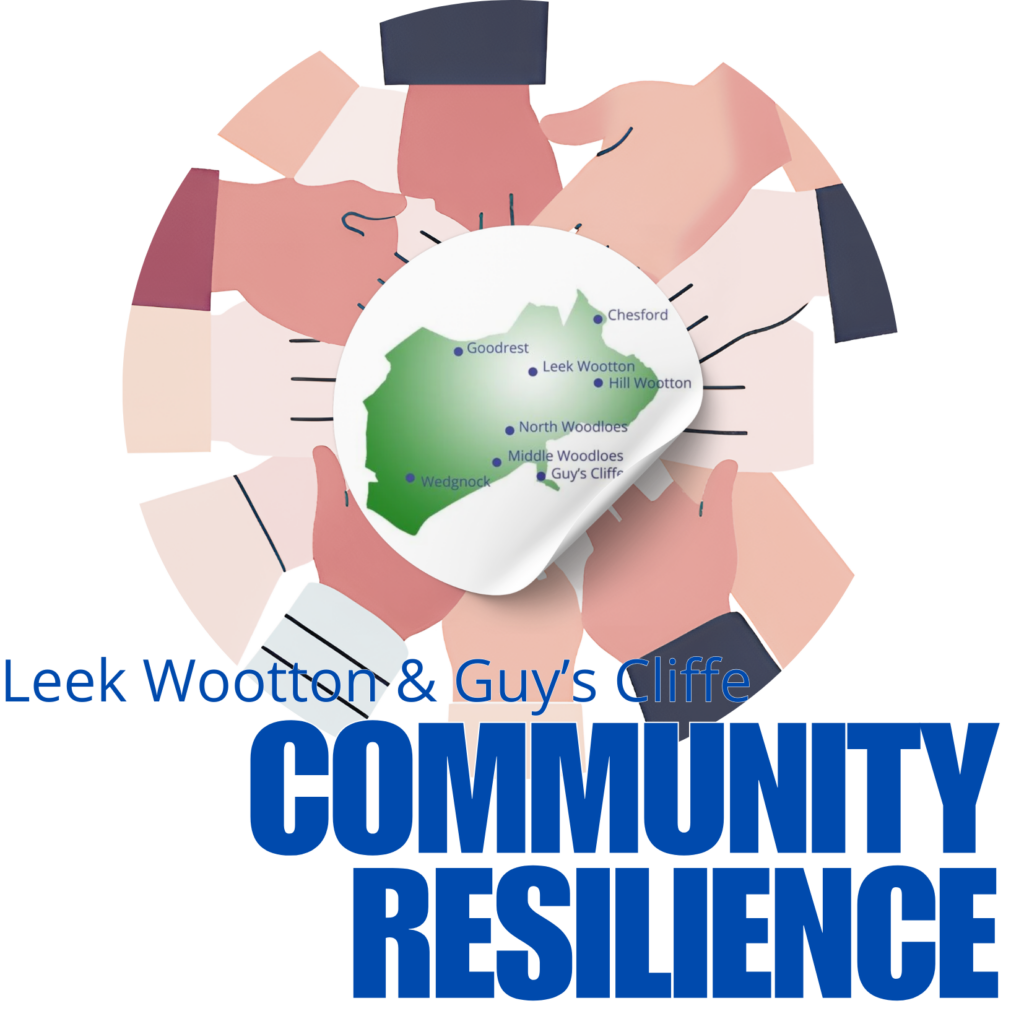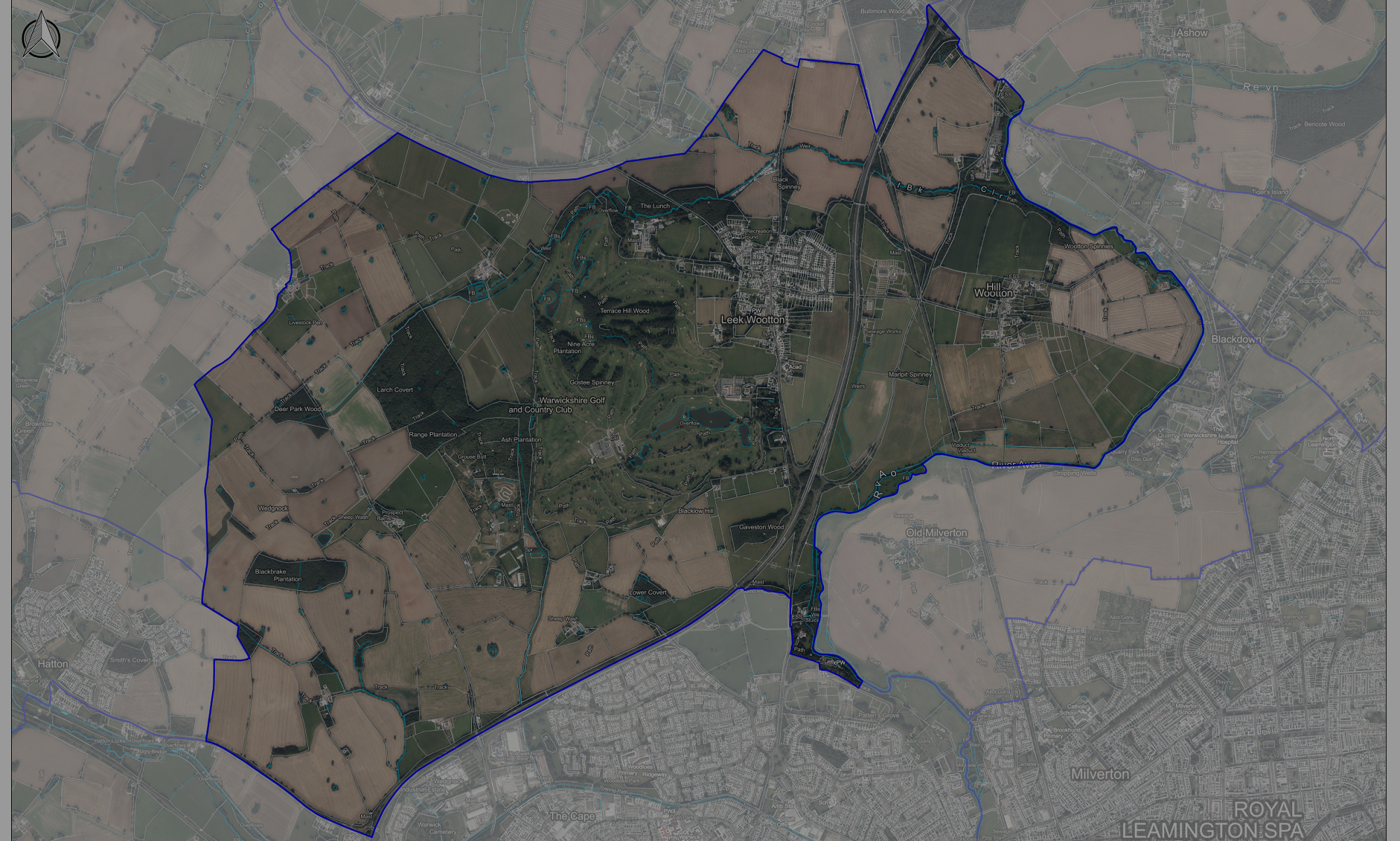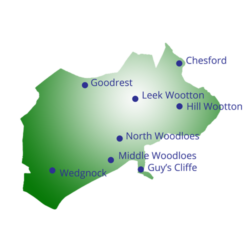
LW&GC Parish Council is currently considering its approach to community resilience and emergency planning. In the first of a series, here is some information which may be helpful to residents.
Click here for some general advice about emergency planning (flooding and snow) from the District or County.
Posts about Community Resilience:
A46 closure and lane restrictions, near Kenilworth: 11 April - 1 May 2025
HS2 will be closing a section of the A46 from the Stivichall Interchange (Festival Island) to the Thickthorn Island (A452 for Leamington and Kenilworth) for 19 days. It will hold three days as a contingency in case of an unforeseen event
Full closure dates: 8pm Friday 11 April until 6am Thursday 1 May 2025
A new box structure is to be pushed into place to take the HS2 line under the A46 near Kenilworth. Once the box is slid into place, we will complete the remaining works; resurface the carriageway, reinstate the white lines and safety barriers ready to reopen the A46.
As part of the closure a number of mitigation measures are to be put in place to protect communities from through traffic and ease local traffic flows:
- No right turn into or out of Hill Wootton Road at Kenilworth Road, Blackdown
- Full road closure of Ashow Road at junction near the Chesford
- Temporary traffic lights at Blacklow or Gaveston roundabout (A46 south of Leek Wootton) - only to be used if necessary
- Temporary traffic lights at St John's gyratory, Kenilworth - only to be used if necessary
- Dalehouse Lane will be one-way only towards Kenilworth
- Birmingham Road closure at the crossroads into Stoneleigh with a signed diversion in place.
- No right turn onto Coventry Road near the bridge at Stoneleigh from the B4113 towards Stoneleigh Deer Park Golf Course.
There will be diversions in place during the closure. For HGVs and long-distance traffic the diversion is via the M40, M42 and M6, but residents should be aware of increased traffic during this period (including Easter weekend) on alternative routes throughout the area, including Warwick Road through Leek Wootton and the B4115 (Coventry Road), and allow extra time to get to their destination.
Find out more on the HS2 website at https://www.hs2.org.uk/work-items/notice-of-a46-closure-and-lane-restrictions-near-kenilworth/
Or read catchup with live updates on one.network at https://one.network/?tm=GB141796801
Community Resilience Newsletter (Dec-2024)
Cllr Joy Morgan wrote the following piece for the Dec 2024/Jan 2025 issue of the Leek Wootton Link. Unfortunately, due to limited space, this was edited down somewhat. Below is Joy's complete article:
The recent loss of water in the parish, followed most recently by a surprisingly early snowfall, has perhaps given some of us a jolt to think about whether we are properly prepared as households and as a community to deal with weather and unforeseen events. There is, perhaps, a tendency for us to feel, as a community in the land-locked Midlands and close to urban conurbations, that we won’t be hit by a loss of power or water, but as extreme weather events are on the increase around the world, we might need to think more seriously about our vulnerability. In Autumn and Winter 2023/24, many more areas in the Warwick District Council area flooded than previously, with some areas flooding that had never flooded before.
COLD WEATHER, SNOW AND ICE

Although many people enjoy the winter season, during periods of cold weather some people are at higher risk of illness if they become too cold, or can seriously hurt themselves if they slip and fall.
Severely cold weather can also cause disruption to road and rail transport. Car accidents also become more likely when road surfaces are icy and people are not used to driving in these conditions.
Who is most at risk?
Cold weather can affect anyone, but some people may face a higher risk being impacted by cold. Some of the groups who may be most at risk are:
- Older adults.
- People with long-term health conditions such as cardiovascular or respiratory disease, or a mental health condition.
- Pregnant people.
- Babies and young children.
- People with learning disabilities.
- People at risk of falls.
- People who live alone and may be unable to care for themselves.
- People who are housebound or have low mobility.
- People experiencing homelessness or people sleeping rough.
Actions to take to prepare for cold weather or if cold weather is forecast
- Read about the symptoms of hypothermia and understand the actions to take if you or someone else has them. Hypothermia is a medical emergency and needs to be treated in hospital.
- Plan ahead and check that you have enough medication and food in case it is harder than usual to leave the house. You could think about who might be able to help pick up food and medication on your behalf if you were unable to leave the house – let them know you might need them.
- Prepare your vehicle for driving in cold weather. The RAC provides advice on preparing your vehicle for winter conditions at https://www.rac.co.uk/drive/advice/how-to/top-10-ways-to-detect-a-breakdown/ and on how to drive in snow at https://www.rac.co.uk/drive/advice/winter-driving/driving-in-snow/
- Consider packing a few essential items in your car’s boot to make sure you are ready in case of getting stuck in cold and wintry weather. The RAC recommends drivers carry the following: demisting pad, torch (wind-up so you don’t run out of battery), a hi-vis vest to make you’re visible if you break down, a blanket to keep you warm, some food, a drink, spare screenwash, de-icer, ice scraper, blanket, shovel, phone charger, map, a first aid kit, a warning triangle, some jump leads, a spade and a square of carpet that you can use to put under your drive wheels should you get stuck in the snow.
- If you plan to cycle, The Met Office provides helpful advice on how to cycle in winter at https://www.metoffice.gov.uk/weather/warnings-and-advice/seasonal-advice/travel/cycling-in-winter
Actions you can take during a spell of cold weather
- Check the weather forecasts and warnings, or download the Met Office Weather Forecast app where you can create alerts for your area. Pay particular attention to any National Severe Weather Warnings or Cold Health Alerts covering your area, and act on any advice issued.
- Ensure that family, friends and neighbours who may be at higher risk of becoming unwell are aware of, and following, actions to keep themselves safe. If you are worried about someone else’s health, contact your local pharmacist, your GP or NHS 111, who will all be able to offer advice and support.
- Support those who might need extra help by checking how they are feeling, and offering practical support (e.g., help obtaining food or medication) if possible.
- Keep your home warm – try to heat rooms you spend the most time in, such as the living room or bedroom, to at least 18°C.
- Keep your windows closed, particularly at night and reduce draughts wherever possible.
- Do what you can to stay active, indoors.
- Wear several layers of thin clothing rather than one thick layer.
- Wear shoes with good grip to avoid slips and falls on slippery or icy surfaces when out and about.
The Met Office’s WeatherReady pages at https://www.metoffice.gov.uk/weather/warnings-and-advice/weatherready provide regularly updated seasonal advice, and weather updates can be found at https://www.metoffice.gov.uk/
Did You Know?
The Priority Services Register (PSR) is a free UK wide service which provides extra advice and support, including when there’s an interruption to your electricity, gas or water supply.
The Priority Services Register (PSR) is free to join. It helps utility companies, including energy suppliers, electricity, gas and water networks to look after customers who have extra communication, access or safety needs. It helps them tailor their services to support households who need extra help with everyday energy matters like bills, and also in the unlikely event of a power cut, gas or water supply interruption.
Utility companies are working together to make sure that a property receives all the support services covered by the Priority Services Register. By telling them once, they update your PSR request with your energy supplier (the company you pay your bills to) and your regional network companies including electricity and gas. Since 31 March 2023 electricity companies are, where possible, sharing PSR information with water companies, so you can get vital help and support from them too if there's a break in your water supply.
The PSR promise is made by all participating energy companies in England, Wales and Scotland. They will always follow privacy laws and your PSR information will never be used for marketing.
You are eligible for free PSR services if you meet any of the following criteria:
- Are of pensionable age
- Use medical equipment reliant on electricity or water
- Are deaf or hard of hearing
- Have a disability
- Have a chronic illness
- Are blind or partially sighted
- Have loss or impairment of smell
- Have anxiety, depression or any mental health condition
- Temporarily need extra support
- Live with children under five
- Need documents translated into another format or language
The benefits of signing up for priority services are:
- Support and information during a power or gas supply interruption
You can contact the network operators in the UK 24 hours a day, every day, and get priority updates in a power cut. If your electricity or gas needs to be temporarily switched off to carry out essential maintenance, you will get prior advance notice to allow you to plan ahead.
- Connection to local emergency services
Your electricity and gas companies work with local authorities, emergency services and agencies, like the British Red Cross, to provide extra support to people on the Priority Services Register.
- Emergency power
If you use medical equipment/aids which use electricity or water the PSR helps to prioritise help during prolonged supply interruptions. Portable generators or bottled water can be delivered when necessary.
- Emergency gas
If you are on mains gas and your supply is interrupted for a prolonged period, the PSR will aim to help you with emergency electrical heating and cooking appliances.
- Communication tailored to your needs
You can request a format that suits your needs, e.g. Large Print, Braille, textphone, audio or a language other than English.
- Nominated contact
If it helps, the PSR can contact a nominated carer, family member or friend on your behalf
- Peace of mind
Joining the PSR allows you to set up a password to use when electricity or gas company employees call you or knock at your door. Registering a password helps protect your personal safety and home security
- Emergency Contact
In a power cut, you can call 105
Register now at https://www.thepsr.co.uk/
EMERGENCY PLANNING
Nearly all emergencies affecting the local community will be dealt with routinely by a joint response from the emergency services, local authorities, health agencies and utility companies. However, in extreme conditions such as snow and flooding, there is a possibility that the emergency services and other agencies may be overwhelmed and not be able to reach us immediately.
The Parish Council's Emergency Plan is currently under review. However, a communication system remains in place since the COVID-19 pandemic.
You can contact the Clerk or Parish Councillors at any time.
FLOODING
Click here to check for flooding alerts in Leek Wootton and surrounding area
Advice is also available from:
- Floods advice on Warwick District Council website
- Flood Risk Management advice on Warwickshire County Council website
Non-weather event highway flooding caused by surface water drains being blocked: Please report to the Clerk or WCC Highways
SNOW
Advice is available from Warwickshire County Council about:
Please report empty grit bins to the Clerk


